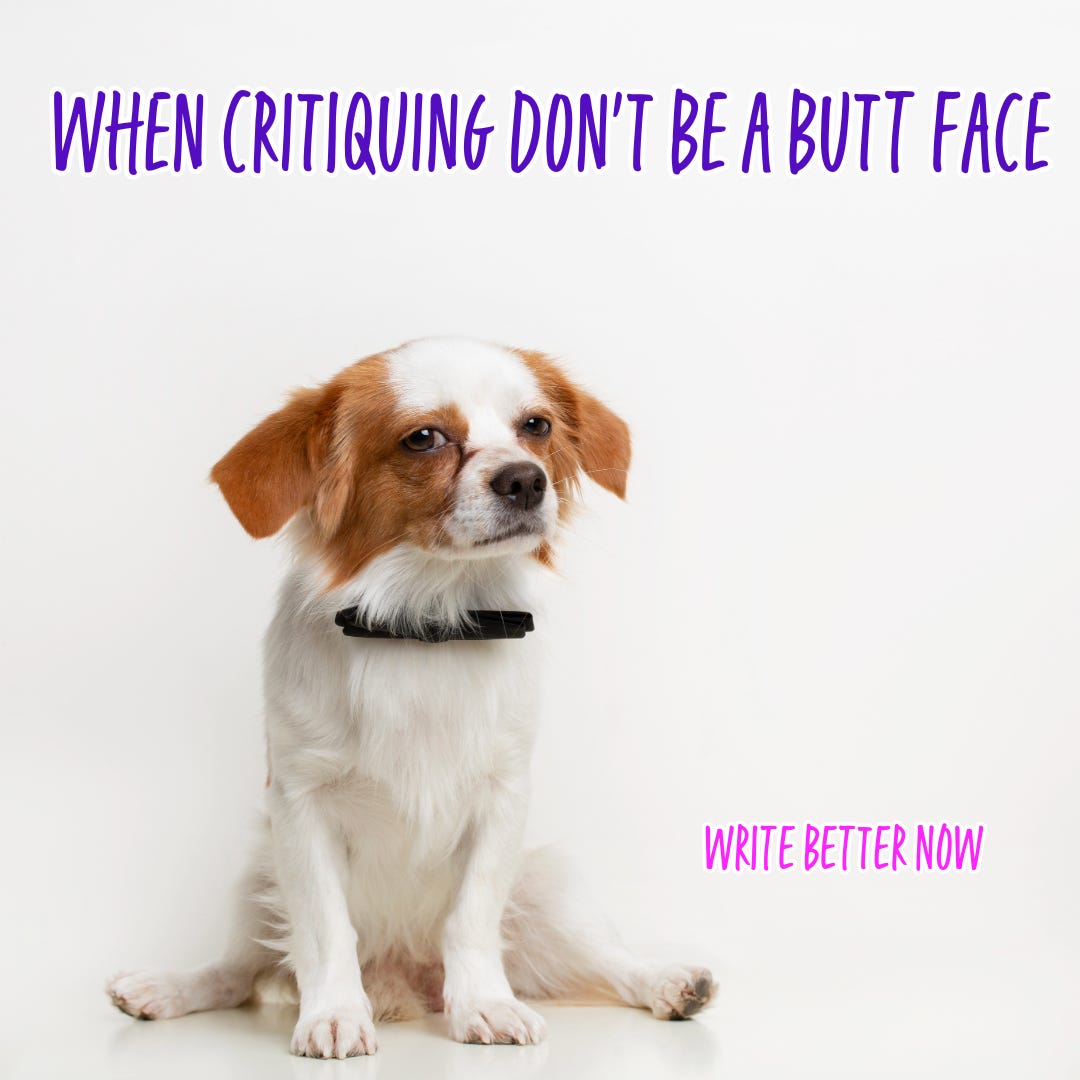When Critiquing Don't Be a Butt Face
And same goes for when you get the critique
Chuck Wendig has an ancient post entitled, “HOW TO MAKE THE MOST OUT OF A WRITING CRITIQUE: TEN TIPS,” and he has a lot of golden nuggets of wisdom under all his humor. He also has a mastery of title SEO.
One of those nuggets is just what is a critique. It seems self evident, right?
Well, sometimes it isn’t.
Here’s what he wrote:
“Critique is not criticism. Not in its entirety. It is an analysis of the work. A critical, intelligent analysis. It’s not tearing the thing apart. It’s not building it up. It’s breaking it into its constituent pieces, examining them, then putting them back together to see how it all works. It is an assessment, not a hit piece. Editors do not cackle madly upon seeing a story, growing sexually frantic over the chance to maul your work the way a bear might maul a couple of teenagers banging in a zipped-up sleeping bag.”
That first line is pretty important. When getting a critique, your goal isn’t to get yanked down into an abyss of self-loathing and feeling like you absolutely suck.
And even more importantly, when giving a critique (be it as a beta reader, writing group participant, reviewer, or paid editor), your goal isn’t to make the writer want to never write again.
Well, it is if you are a buttface.
Life tip: Don’t be a buttface.
When you give an analysis of someone’s work, with potential action steps and suggestions, you can do this kindly. You can point out possibilities to make things better rather than edicts. Sometimes when you do this really nicely, people (writers) actually get motivated to revise. They might even say that you’re too nice as they change their entire 600,000-word novel about manatees into a 50-word poem.
But it’s also super important to remember that everyone’s opinions about art (novel, painting, show, etc.) is just a freaking opinion. None of us are gods. Not even that editor or NYT critic.
In this business, which is so subjective, it’s really important to remember when you’re giving a critique or getting one that it is just that—subjective.
I once heard a poetry professor say to a first-year college student who had just been sexually assaulted and wrote about it, “Why would you write this? It’s drivel.”
I have edited a million clients who have said, “My last editor never wanted me to write again.”
I have read people post, “NAME should never write again. Ever.”
And I had one anonymous troll post on my blog. “You are no writer.”
There’s no justification for tearing people apart in the name of critiquing their art.
If a critique hurts your heart? If an agent rejection feels mean? If a troll tells you not to write again and that troll is a beta reader? It often says more about that person than your work. Everyone always talks about writers needing to be tougher, have more walls, blah, blah, blah.
Walls are fine, I guess. But when you build them, you risk losing your heart and your passion. You risk losing your love of what you’re creating.
I think maybe we might want to reverse this way of thinking. And maybe, we could ask those doing the analysis of work to do it with lifting in mind, with empathy, with kindness.
Gasp! I know! I know! Such silliness.
But here’s the thing. It’s not.
We’re all people with hearts and feelings and emotions. We can help each other out kindly.




